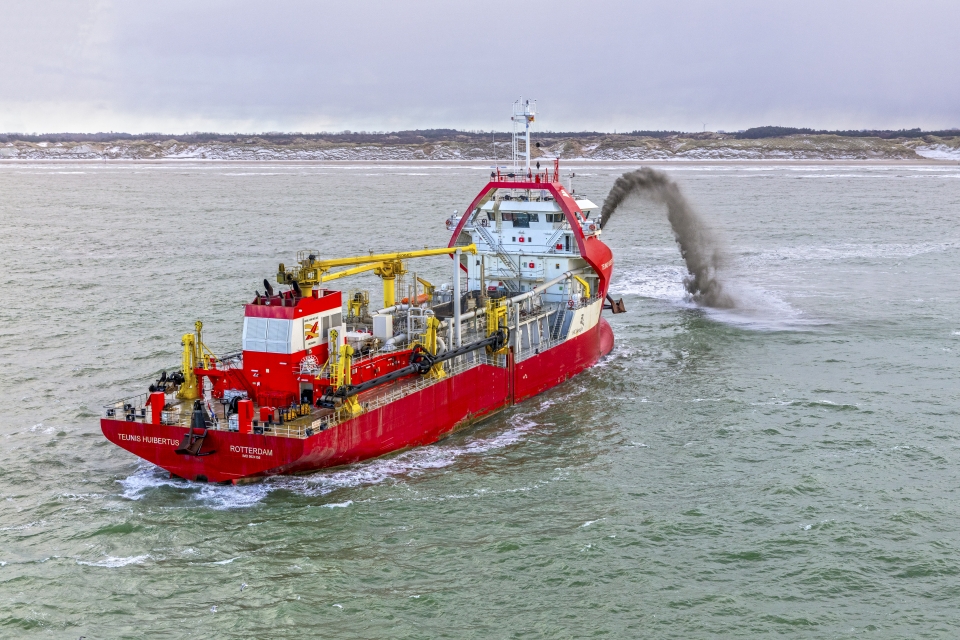- Editorial Insight on Unfair Competition
- Chinese Influence in European Infrastructure
- EuDA's Concerns on the 30th Anniversary
- European Market Dependency and Chinese Expansion
- Historical Context and Legislative Changes
- The Impact of Chinese Market Share Growth
- Implementation of the Foreign Subsidies Regulation (FSR)
- Challenges and Opportunities for European Dredging
- Strategic Importance of the European Dredging Industry
Editorial Insight on Unfair Competition
China has become a significant competitor to European dredging companies, impacting their dominant position in Europe. Leading firms such as Boskalis, Van Oord, Jan De Nul, and DEME are particularly affected, facing bids from the Chinese state-owned enterprise CCCC-CHC-CDC that are sometimes 31.8% lower than their own in public dredging projects.
Antoon Oosting, the editor-in-chief of SWZ|Maritime, consistently discusses issues within the maritime industry in his column. In the magazine’s February 2024 issue, he focuses on the pressing challenge of unfair competition that European dredgers face from Chinese companies.
Chinese Influence in European Infrastructure
In recent years, Chinese firms have undertaken significant infrastructure projects in Eastern Europe, including bridge and highway constructions. They have also expanded their influence by acquiring strategic assets in Europe such as container terminals in Piraeus and Genoa, a Spanish solar park developer, a significant Portuguese construction firm with a €3.8 billion turnover in 2022, and Kuka, a German industrial robotics company.
EuDA’s Concerns on the 30th Anniversary
During the 30th anniversary of the European Dredging Association (EuDA) on November 21, 2023, discussions centered around the future challenges, particularly the increasing competition from China. EuDA’s secretary-general, Paris Sansoglou, compared unfair trade practices to coastal erosion, which can erode even the strongest companies if not addressed.
European Market Dependency and Chinese Expansion
The European dredging market serves as a foundation for global ventures. Since 2009, there has been a notable increase in Chinese activities in Europe, reaching a peak in 2020. Although the COVID-19 pandemic momentarily slowed this trend, Chinese companies resumed aggressive attempts to secure major European infrastructure projects soon after.
Historical Context and Legislative Changes
Historically, European dredgers occasionally won contracts in China, such as the incident in 2007 when Boskalis’ W.D. Fairway was damaged in Tianjin. However, recent legislative changes in China have made it virtually impossible for foreign companies to win dredging contracts, signaling a closed market.
The Impact of Chinese Market Share Growth
Chinese dredging firms have not only expanded their operations domestically but have also significantly increased their international market share, particularly in Africa where they have doubled their market share. This expansion is largely at the expense of European companies.
Implementation of the Foreign Subsidies Regulation (FSR)
In response to the growing influence of subsidized foreign competitors, the European Union introduced the Foreign Subsidies Regulation (FSR) to combat distortive foreign subsidies in EU acquisitions and public tenders. This regulation aims to create a level playing field by examining and potentially prohibiting acquisitions and public contracts that involve anti-competitive subsidies.
Challenges and Opportunities for European Dredging
The competitive pricing tactics of Chinese companies were highlighted in the 2021 Elbe River dredging tender, where their bid was significantly lower than those from European companies. This incident underscored the need for a robust European economic security strategy to prevent strategic sectors from foreign domination and ensure resilience in supply chains and technological sectors.
Strategic Importance of the European Dredging Industry
The European dredging industry is critical not only for traditional dredging and offshore activities but also for strategic operations like deep-sea mining. These activities are vital for Europe’s economic safety and autonomy, suggesting a need for enhanced protection and strategic planning within the industry.
By addressing these issues and bolstering cooperation between policymakers and the dredging industry, Europe can secure its economic interests and maintain a competitive edge in the global dredging market.
